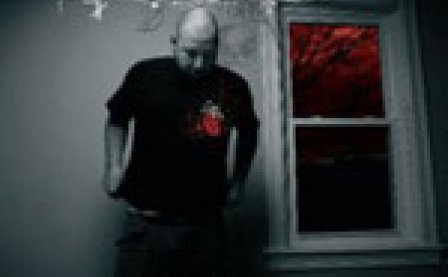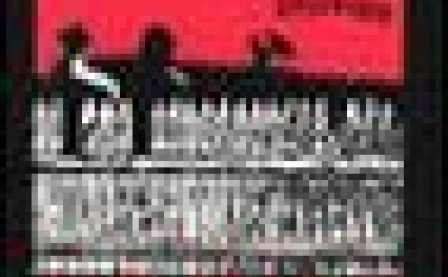The idea that good intentions are worth something, in and of themselves, is fallacious to say the least. Perhaps they deserve additional credit or consideration, but in truth, good intentions are rarely rewarded — or even appreciated for that matter. Sage Francis, it can be assumed, set out to make an album of inherent value, a serious, probing, philosophical album, confrontational but kind-hearted. Li(f)e, the result of this earnest approach, isn’t quite the unqualified success. Its sincerity is certainly noble, but often distracting in execution. There’s much to admire in Francis’ humanist purview; the issue is not his convictions, but his expression of them. The frequently leaden lyrics would be forgivable of a man half his age, but at 32, the lack of subtlety can be infuriating.
Which is a shame, frankly, because Li(f)e has much to offer. Despite the risks involved in stylistic synthesis, the winning mixture of hip-hop and Americana comes off as effortless, rather than forced or fey. On Li(f)e’s strongest songs, the Rhode Island rapper matches his delivery to the unconventional instrumentation, displaying a willingness to eschew rigidity and adapt his vocals to the music, rather than the reverse. This apparent lack of vanity earns Francis more goodwill than his simplistic ideology; it also helps keep Li(f)e from becoming monotonous for most of its duration.
Li(f)e’s better songs transcend their clunkier moments. “Three Sheets To the Wind” feels authentically defiant, though its central refrain (“We ain’t never gonna not live forever”) is repeated too much to leave any impression other than of its nonsensicality. “Little Houdini,” the album’s subtly psychedelic opener, is a decent piece of creative nonfiction, undermined by its unconvincing chorus. Much of the credit for Li(f)e’s successful elements should go to Francis’ well-chosen collaborators (including, but not limited to former Grandaddy frontman Jason Lytle, French composer Yann Tiersen, and the dearly-departed Mark Linkous), but the production, handled by Brian Deck, deserves special mention. Li(f)e, even at its weakest, feels like a cohesive project, one that has been exhaustively planned and impeccably performed.
Sometimes the lyrical simplicity works in Li(f)e’s favor, lending the album a sing-songy, child-friendly quality, not unlike that present in the work of folk singers like Woody Guthrie and Pete Seeger. At least in terms of profundity, “I Was Zero” doesn’t amount to much, but its buoyant mood disguises most of Francis’ profane sentiments. Emphasis on “most”; there’s little excuse for off-putting — and unnecessary, considering the context — references to “ripping at [his] dick like a tourniquet.” This tendency toward the melodramatic is Francis’ most glaring lyrical weakness, second only to the incoherence of his grandstanding. The polemical approach — signaled by the Shepard Fairey cover art — is tolerable, but the moral muddle is less so, such as on “The Baby Stays,” a track that feels out of place on a proudly humanist album such as this. Also, the gleefully anti-hegemonic “London Bridges” strives for provocation, but fails to offer any lucid political insights.
It’s hard to measure the balance of Li(f)e’s strengths and flaws. Francis, through his jumbled and labored lyrics, does himself a disservice throughout, almost in spite of his strong vocal work. His good intentions are largely undone by the occasional ideological confusion. The enjoyment offered by the instrumentation is unmitigated, however, which ultimately makes Li(f)e something of a positive-sum venture. Perhaps an unintended and unwanted resonance, Francis confirms that one thing is certain: Li(f)e is messy.
More about: Sage Francis



